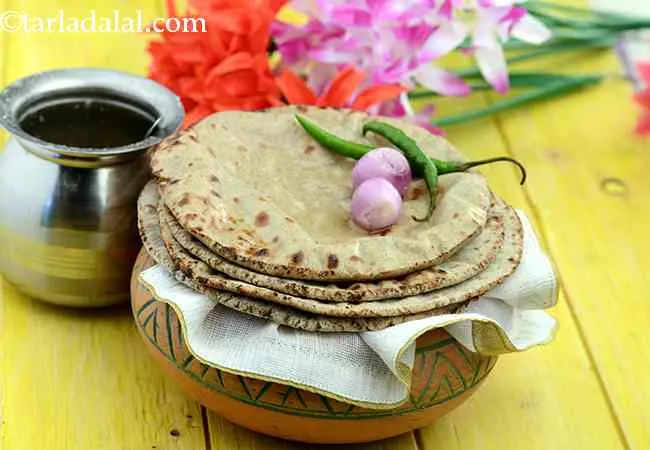Calories in Panch Phoron Moong Dal Recipe (Bengali Moong Dal)
This calorie page has been viewed 4286 times

Table of Content
How many calories does one serving of Panch Phoron Moong Dal have?
One serving (117 grams) of Panch Phoron Moong Dal gives 95 calories. Out of which carbohydrates comprise 62 calories, proteins account for 24 calories and remaining calories come from fat which is 8 calories. One serving of Panch Phoron Moong Dal provides about 4.7 percent of the total daily calorie requirement of a standard adult diet of 2,000 calories.
Panch Phoron Moong Dal makes 940 grams and serves 8, having 117 grams per serving.
95 calories for 1 serving of Panch Phoron Moong Dal, Cholesterol 0 mg, Carbohydrates 15.5g, Protein 6.2g, Fat 0.9g. Find how much fibre, iron, calcium, zinc, magnesium, phosphorus, sodium, potassium, folic acid is present in Panch Phoron Moong Dal.
See panch phoron moong dal recipe | Bengali moong dal | healthy moong dal for diabetes and kidney |
Is Panch Phoron Moong Dal healthy?
Yes.
Lets understand the ingredients of Panch Phoron Moong Dal.
What's good in this Panch Phoron Moong Dal recipe!
Yellow Moong Dal : The fibre (4.1 g in ¼ cup) present in yellow moong dal prevents the deposition of bad cholesterol (LDL) in the arteries which promotes a healthy heart in turn. Packed with nutrients like zinc (1.4 mg), protein (12.2 mg) and iron (1.95 mg), yellow moong dal helps to maintain the elasticity of your skin and helps to keep it moist. Fiber, potassium and magnesium from yellow moong dal will work together to regulate blood pressure and soothe the nerves and is diabetic friendly. See here for details of 7 amazing benefits of yellow moong dal.
Onions (pyaz, kanda) : Raw onions are a very valuable source of vitamin C – the immune building vitamin. Along with other phytonutrients from onions, it helps to build WBC (white blood cells) which serves as a line of defence against illness. Yes, it’s a source of many antioxidants, the most important one amongst them being Quercetin. The quercetin in Onions promotes production of HDL (good cholesterol) and lowers total cholesterol in the body. The sulphur in onions act as a blood thinner and prevents blood clotting too. This in turn would lower blood pressure and good for heart, diabetics. Read the benefits of onions.
Can diabetics, heart patients and over weight individuals have Panch Phoron Moong Dal?
Yes. The fibre (4.1 g in ¼ cup) present in yellow moong dal prevents the deposition of bad cholesterol (LDL) in the arteries which promotes a healthy heart in turn. Packed with nutrients like zinc (1.4 mg), protein (12.2 mg) and iron (1.95 mg), yellow moong dal helps to maintain the elasticity of your skin and helps to keep it moist. Fiber, potassium and magnesium from yellow moong dal will work together to regulate blood pressure and soothe the nerves and is diabetic friendly.
Can healthy individuals have Panch Phoron Moong Dal?
Yes.
Panch Phoron Moong Dal is rich in below macronutrients, vitamins and minerals given in descending order (highest to lowest).
- Folic Acid (Vitamin B9): Folic acid is an essential vitamin required throughout pregnancy. Folic acid rich Indian foods (kabuli chana, chana dal, yellow moong dal, urad dal, tooval dal, til ) 18% of RDA.
- Protein : Protein is required for managing the wear and tear of all cells of the body. Have protein rich Indian foods like paneer, curd, Greek yoghurt, tofu, almonds, sprouts, chana, rajma, chick peas, quinoa, buckwheat ). 11% of RDA.
DAL + ROTI (cereal) enhances protein value
Combine dal with bajra roti, jowar roti, radish nachni roti recipe , basic ragi roti recipe or whole wheat roti, whole wheat bhakri recipe to make a healthy combination. Note that when you combine any dal with any cereal like bajra, jowar, ragi, buckwheat, barley or whole wheat to enhance the protein value.
Bajra Roti
| Value serving | % Daily Values | |
| Energy | 95 kcal | 5% |
| Protein | 6.2 g | 10% |
| Carbohydrates | 15.5 g | 6% |
| Fiber | 2.10 g | 7% |
| Fat | 0.94 g | 2% |
| Cholesterol | 0.0 mg | 0% |
| VITAMINS | ||
| Vitamin A | 17.9 mcg | 2% |
| Vitamin B1 (Thiamine) | 0.1 mg | 9% |
| Vitamin B2 (Riboflavin) | 0.1 mg | 3% |
| Vitamin B3 (Niacin) | 0.6 mg | 4% |
| Vitamin C | 0.5 mg | 1% |
| Vitamin E | 0.0 mg | 0% |
| Folic Acid (Vitamin B9) | 35.3 mcg | 12% |
| MINERALS | ||
| Calcium | 20.9 mg | 2% |
| Iron | 1.1 mg | 6% |
| Magnesium | 28.6 mg | 7% |
| Phosphorus | 3.5 mg | 0% |
| Sodium | 7.0 mg | 0% |
| Potassium | 295.8 mg | 8% |
| Zinc | 0.7 mg | 4% |
Percent Daily Values are based on a 2000 calorie diet. Your daily values may be higher or lower depending on your calorie needs.

Click here to view Panch Phoron Moong Dal
Calories in other related recipes
















